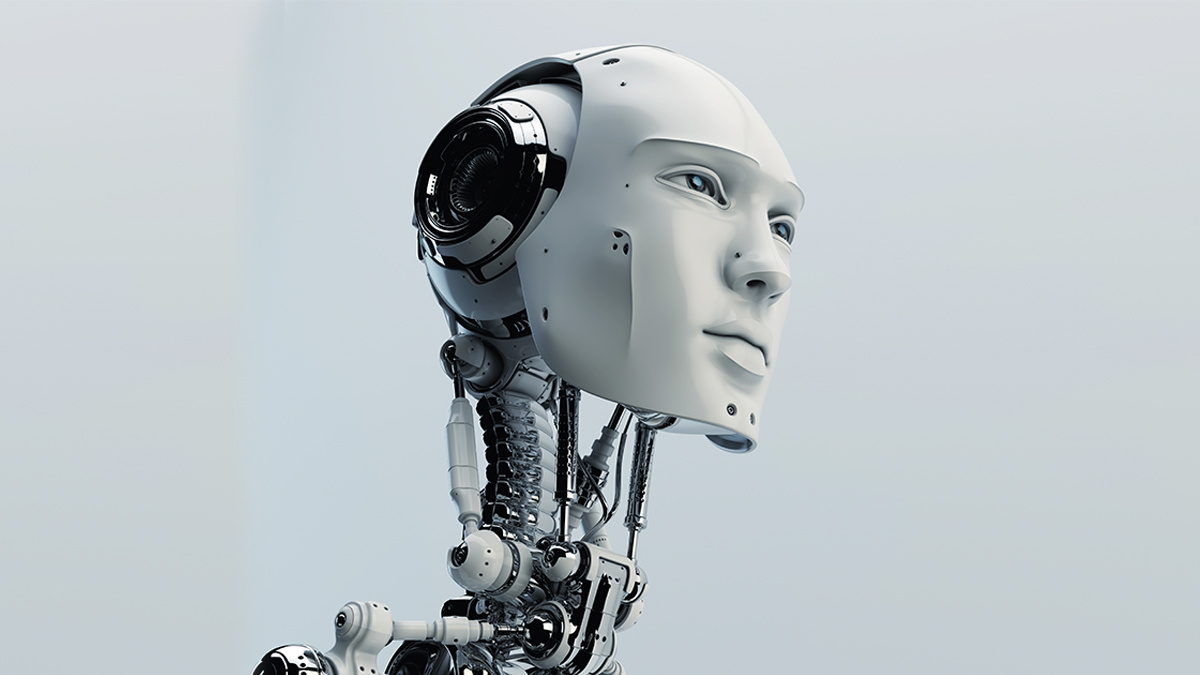Heraclitus, a Greek philosopher, is quoted as saying “change is the only constant in life.” None more so than in the use of artificial intelligence in business and the massive impact it’s having.
Business artificial intelligence is incredibly prevalent today. As of 2021, 86% of CEOs have said that AI in business is a mainstay in their offices. Adopting it will likely mean the difference between thriving and surviving.
To help people prepare for this wave, Nexford University offers an MBA with a specialization in advanced AI and the future of automation.
How is artificial intelligence currently used in business?
In the iconic Terminator movie of 1985, Skynet, a fictional neural network-based artificial intelligence system was shown to have used its futuristic thinking to turn on the very people that created it. This couldn’t be further from the truth.
Today, the use of artificial intelligence in business has meant that humans are more in control of their destiny than ever before. This once futuristic technology has meant that businesses are firmly in the driving seat.
They can use AI in business and its data analytics to develop new ideas, improve insights, and make better business decisions.
Data analytics and NLP are among the top applications of AI. How do these three domains simplify processes and increase operational efficiency? A wide range of businesses:
-
Automation: Manually repetitive tasks are pretty much gone. Employees can now really help build the bottom line by being able to focus on tasks that add real value to the business.
-
Data Analytics: The devil is in the data and analytics allows organizations to mine that data to gain insights into repetitive patterns for better business outcomes.
-
Natural Language Processing: (NLP) helps search engines to be more intuitive and chatbots found on pretty much all sites to be more insightful and customer-centric.

Uses of artificial intelligence in sales and customer service
Customer service is something vital in all forms of business. No customers, no business, and no business equals no sales. It’s as simple as that.
To keep the tills ringing, Artificial intelligence (AI) is helping companies target more receptive customers and achieve more sales, because this technology can automate and bolster a lot of the sales process.
It can help businesses automate time consuming and laborious data entry tasks or complicated jobs that do not require sales forecasting.
It can enable businesses to prioritize what needs to be done, when and where, by highlighting patterns in customer responses, and improving lines and methods of communication between sales reps and potential clients including emails, phone calls and chats.
At the end of the day, it means all salesmen and women can focus on increasing sales and sales revenue. But before all salespeople panic and start thinking of choosing a new vocation, they can relax, as AI will never fully replace salespeople.
In fact, it is the converse. Companies are now looking to employ more. With AI guiding the sales process and making it more effective, it is really a case of the more the merrier.

The proof of the pudding is in the eating as a Harvard Business Review, says that companies using AI for sales can grow leads by more than 50%, reduce call time by 60-70%, and costs by 40-60%. It’s never been easier to achieve organic growth and grow the bottom line.
Here are a few current uses of artificial intelligence in sales:
Demand forecasting – Artificial intelligence points sales to when and where client demand for products is set to increase and determines ways to take advantage of those trends to boost sales.
Lead scoring – Leads are one thing; quality leads are another. AI uses historical data to help businesses separate the wheat from the chaff, prioritize leads and convert more of those hot leads into sales.
Sales rep chat/email bot – Chatbots are said to improve sales by up to 67%. They can help start the conversation by tailoring a message, making it simple for customers to interact right away or come back later.
AI can also produce personalized emails to all types of customers to make them feel valued and spur them into spending more. Leaving sales reps to concentrate on other more important tasks.
Uses of artificial intelligence in finance
Many experts maintain that the industry that AI is having the most effect in is the finance arena as this is the area that sees the most manually repetitive data entry tasks that can be eliminated with the widespread use of the technology.
Allowing personnel to focus on innovation and not repetition. Forbes denotes that 70% of financial firms are using machine learning to predict cash flow events, adjust credit scores and detect fraud.
In fact, a recent AI report has outlined that around 80% of banks have come to realize the lucrative benefits that AI can have in modernizing their processes and workflows.

Applications of AI in Financial Services include:
AI in Personal Finance – People should not be treated as numbers, and none more so in finance where the ‘one size fits all’ era is firmly over. In personal finance, AI is helping institutions offer financial guidance via chatbots for improved wealth management solutions.
AI in Consumer Finance – AI helps banks compete and reduce fraud as it can monitor transactions and target irregularities in them to determine if they are legitimate or fraudulent.
This is mission-critical as banks and other financial services providers are staring down the barrel with online payment fraud losses expected to jump to $48 billion per year by 2023.
AI in Corporate Finance – No other industry is more prone to risks than the finance industry, especially when it comes to providing loans to companies where everything may look above board but could prove otherwise later.
AI can help lower that risk by being able to assist underwriters to better predict loan risk and its negative financial implications.
Uses of artificial intelligence in supply chain management
The age-old challenge of getting goods from A to B in the fastest and most cost-effective way has always been an age-old issue for businesses.
Mix that in with a healthy dose of trying to lower one’s carbon footprint for improved sustainability and it’s not surprising to find that AI has been the savior for logistics companies to dramatically improve supply-chain management solutions and diminish the negative effects of market volatilities.
In a recent McKinsey report, it was stated that supply-chain management solutions based on AI will assist organizations in their desire to tackle the challenges of market volatility and the environmental impact of supply chains.
AI’s ability to process big data, understand relationships, provide visibility into operations, and support better decision-making makes it a game-changer. But it’s not just a matter of organizations choosing to engage with this technology, companies must find ways to squeeze every last drop out of their use of it.
Companies need to do more than simply enhance the size and relevance of their supply-chain teams. There are other challenges to overcome:
-
Identifying the demand for various products across the world
-
Integrating AI solutions (such as processing optimization and predictive maintenance) to better manage the value chain
-
Ensuring that plans get executed and can adapt to unforeseen circumstances such as halts in production and transportation disruption coming from any cause
The good news is that AI-based solutions are readily available for companies to take their levels of supply-chain management to the next level.
The successful implementation of AI-enabled supply-chain management has proven that early adopters have been able to improve logistics costs by 15%, inventory levels by 35%, and service levels by 65%, compared to the laggards.
Uses of artificial intelligence in digital marketing
Remember when marketing was all about the four Ps? They were product, price, place, and promotion. This was never an exact science and so much has changed since then.
With digital marketing taking pride of place in the organizational marketing mix, AI technology is helping marketers to spot and predict trends, allowing them to make strategic decisions about where they allocate their budgets and who they target.
In so doing, brands can reduce digital advertising waste and ensure that their spending delivers the best possible results.
Provided they are given the right data, AI machines can help determine who would be interested in your products, and where would be the best place to position that product in terms of the perfect marketing and advertising plan to target the right people at the right time and obviously increase sales.
Applications of AI in digital marketing include:
Online advertising – Before AI marketers had to perform hours upon hours of in-depth research to determine which digital platform would be best to market their business on. AI does this all now so marketers can concentrate on their digital strategy and how to get the most out of it.
Personalized user experience – AI makes it possible to understand the likes and dislikes, behavior patterns, and activities of millions of people every day and drill down in more granular detail to increase the user experience and create improved and more profitable customer relationships.
AI-powered chatbots – We’ve all seen them on sites, but AI-powered Chatbots are different from their standard counterparts as they can answer multiple customer queries simultaneously and that answer is personalized to encourage users to buy right there and then.
Predictive analysis – Using this model, AI can predict a customer’s future actions by studying their past behavior and characteristics, allowing marketers to use the data to create campaigns that attract more customers and convert them into paying customers.
Content generation – How could AI possibly write better than a writer. Sounds counterintuitive. However, through processing several TB of data and analyzing thousands of content, AI can create content that looks like a human wrote it.
Email marketing campaigns – We are way past general and multiple blast emails with a scattergun approach. People expect personal content with a relevant message. AI can help you tailor the message using behavior and preferences as a reference point.
Uses of artificial intelligence in project management
According to Forbes, AI is an asset as, unlike humans, it can manage complex analytics on the fly and without error. This allows a system to observe track the way a project is moving and make instant tweaks to make it more successful.
Applications of AI in project management include:
Automate repetitive tasks – Gartner predicts that in 2021, AI augmentation will generate $2.9 trillion in business value and recover 6.2 billion hours of worker productivity.
Use historical data – They say you should look to the future and not the past, but with AI, you can mine historical data and use it to perform calculations and predictions and make the results more accurate and effective.
Perform risk modeling and analysis – Change is the only constant, but if things change suddenly, AI will be able to demonstrate the possible impact using data on how those similar changes impacted previous projects.
Increase decision-making speed – AI is programmed to follow only specific, rule-based workflows. This means anything standing in the way of ‘on-time delivery’ of a project can be quickly addressed.
Optimize resource scheduling and allocation – Figuring out who is available to work on a project based on their current capacity can be tedious and time-consuming. AI can now perform those tasks on its own. But only if the system is kept up to date and the information it has is correct.
Uses of artificial intelligence in product design and development
AI and machine learning (ML) can help accelerate that development and companies are desperately looking for people to make that happen. In fact, there are 15,400 job positions for DevOps and product development engineers with AI and machine learning today on Indeed, LinkedIn and Monster combined.
Applications of AI in product design and development include:
24/7 development – Robots don’t need to take breaks, which facilitates the rapid expansion of production capabilities to meet worldwide evolving customer demands.
Cost reduction – Leveraging AI technologies can help organizations allocate their resources more efficiently, make better forecasts, and reduce inventory costs.
Quick decision making – Machines can collect, and process structured and unstructured data in a fraction of the time it would take humans to perform the same task. The data gathered from sensors and beacons help determine consumer activity, allowing companies to anticipate future needs and make quicker production decisions.
Uses of artificial intelligence in HR
Rather than hindering it, Artificial intelligence is taking massive steps to improve the HR function. AI can automate rudimentary HR tasks so that humans can concentrate on adding more value to the business.

Applications of AI in HR include:
Talent acquisition and development – Without anyone lifting a finger, AI algorithms can screen applicants, maintain databases, and arrange interviews without requiring human input.
Orientation of new recruits – Artificial intelligence can customize procedures to keep track of all the important contact details of the company and other tasks like verification of legal documents.
Training recruits – Using relevant data from job description, AI can automatically assign appropriate training to the employee.
Enhancing employee experience – AI can be implemented across the employee lifecycle, from recruitment all the way through to HR service delivery and career pathing, resulting in a personalized employee experience.
How to apply artificial intelligence in your career
Data and artificial intelligence are emerging as the fastest-growing job clusters in the world and are expected to see a 58% rise in new opportunities from 2020 to 2025.
Forbes says that AI is also a great place to focus your energy if you are looking to upskill in your career or make your professional profile more competitive in the job market, especially when you consider that AI will have such far-reaching impacts across many industries.
AI and machine learning are at the top of many lists of the most important skills in today’s job market. Jobs requesting AI or machine-learning skills are expected to increase by 71% in the next five years.
With an MBA in Advanced AI & the Future of Automation at Nexford University, you can make your CV stand out from other MBA graduates by specializing in hot topics like AI, robotic automation, and applying statistical modelling.
When you take a Nexford MBA with a Specialization in Advanced AI you’ll need to complete three specialized courses in addition to 10 core MBA courses.
You’ll learn skills based on the latest employer needs and market trends – this is what we call our Workplace Alignment Model – our curriculum is designed to equip you with the skills you need, and employers are looking for.











